 Petzlover
Petzlover Croatian Sheepdog is originated from Croatia but Otterhound is originated from United Kingdom. Croatian Sheepdog may grow 17 cm / 6 inches shorter than Otterhound. Croatian Sheepdog may weigh 34 kg / 74 pounds lesser than Otterhound. Both Croatian Sheepdog and Otterhound has almost same life span. Croatian Sheepdog may have less litter size than Otterhound. Both Croatian Sheepdog and Otterhound requires Moderate Maintenance.
Croatian Sheepdog is originated from Croatia but Otterhound is originated from United Kingdom. Croatian Sheepdog may grow 17 cm / 6 inches shorter than Otterhound. Croatian Sheepdog may weigh 34 kg / 74 pounds lesser than Otterhound. Both Croatian Sheepdog and Otterhound has almost same life span. Croatian Sheepdog may have less litter size than Otterhound. Both Croatian Sheepdog and Otterhound requires Moderate Maintenance.
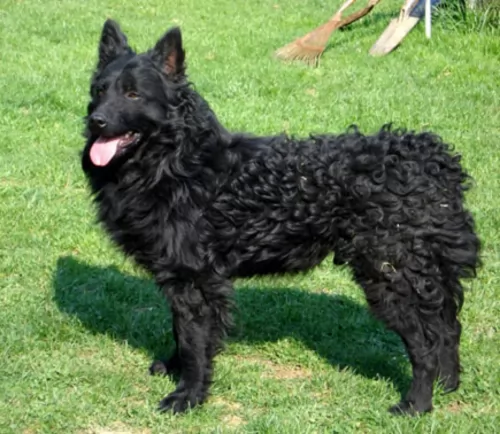 Known also as Hrvatski Ovkars, the black Croatian Sheepdog has been in Croatia since the 7th century already. He was brought to the region by Croats who wanted a strong working dog.
Known also as Hrvatski Ovkars, the black Croatian Sheepdog has been in Croatia since the 7th century already. He was brought to the region by Croats who wanted a strong working dog.
Over the centuries, the dog hasn’t changed much in looks, and in 1935 a breeding program for the dog was developed. A certain Dr. Romic started the program with 3 dogs, and the work he did with the dogs saw that the Croatian Sheepdog got official recognition a few decades later.
In March 1968, the Yugoslav Kennel Club adopted the breed standard, and since then, several kennels recognize the Croatian Sheepdog. The dog is still not known particularly well outside their own county, but in Croatia it is essentially known as a companion dog.
 There aren’t many Otterhounds around and this British pure-breed dog is a scenthound and dates far back to the 19th century.
There aren’t many Otterhounds around and this British pure-breed dog is a scenthound and dates far back to the 19th century.
The dog is regarded as a Vulnerable breed by the English Kennel Club. It is believed that these dogs descended from Bloodhounds and that it was developed in England to hunt otters.The dog’s nose is so sensitive that he was well suited to this job. He was appreciated by royalty and had many royal admirers.
The dog was brought to the United States in 1900 and the Otterhound Club of America was founded in 1960 with the Otter Hound being officially recognized by the American Kennel Club in 1991.
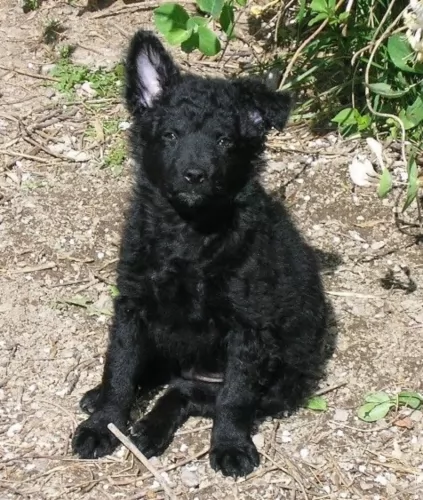 The Croatian Sheepdog is a medium sized, muscular dog which stands roughly 40 – 53cm at the withers and weighs 13 to 20kg. The head is wedge shaped and lean and he has brown to black colored eyes.
The Croatian Sheepdog is a medium sized, muscular dog which stands roughly 40 – 53cm at the withers and weighs 13 to 20kg. The head is wedge shaped and lean and he has brown to black colored eyes.
The triangular-shaped ears are medium sized and semi-erect or erect. The tail of the dog is often docked, but if not it is set high and is inclined to curl over the back.
The dog is nearly always black although you’ll find a few white hairs on the throat or chest or on the legs and toes. The double coat is of medium length, being wavy or even slightly curly.
The Croatian Sheepdog is an athletic, alert dog and he has high energy levels, loving to be put to work or to be busy with one or other activity. He fits in well as a family pet and gets on well with children and pets in the home, but he is going to need plenty of exercise and games.
This particular dog won’t do well with a family of couch potatoes as he craves lots of activities. He will certainly benefit from training and socialization, and because he is intelligent he learns easily and then he is obedient and ready to please.
He is a dominant, confident dog who thrives on attention from his human family. He isn’t a dog you can just stick in the backyard as he is social and craves activity and attention. He is wary of strangers and makes an excellent watchdog.
 The Otterhound has a weather-resistant double coat which is somewhat oily. The coat is available in a number of colors such as wheat, red, grizzle, black, cream and tan with some white markings.
The Otterhound has a weather-resistant double coat which is somewhat oily. The coat is available in a number of colors such as wheat, red, grizzle, black, cream and tan with some white markings.
The double coat is somewhat oily and he has webbed feet, making him particularly suited for his life around water. This large hound stands at between 61 and 70cm and weighs in the region of 35 to 54kg. He has a large head with a nose that can track and scent in mud.
Otterhounds are active dogs, loving nothing more than to be running and playing, and that of course includes swimming. He makes a great sporting companion too and won’t have trouble keeping up with you as you jog or cycle.
These dogs are friendly, social, docile and amicable but they are also strong-willed, stubborn and independent. If you want him to be obedient and well behaved, then he will most certainly require training and socialization.
They get on well with children and will appreciate a firm, consistent, kind owner. He isn’t a city dog as he requires room to run, and therefore a farm or home with large grounds will suit him. Not only that, he is quite a barker, especially when he is bored with nothing to do so city life and living close to neighbors won't do for him . He will suit an active, outdoor family.
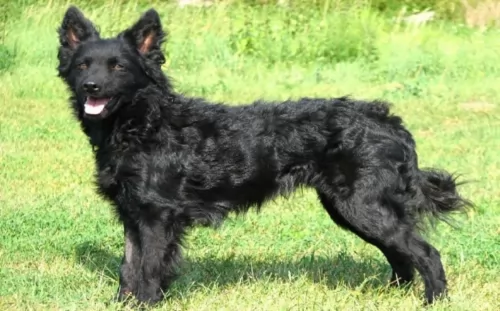 The Croatian Sheepdog isn’t a demanding dog, although he will be relying on you to give him plenty of exercise. He wants to please and will fit into life in the city or life in the country, so long as he gets regular exercise.
The Croatian Sheepdog isn’t a demanding dog, although he will be relying on you to give him plenty of exercise. He wants to please and will fit into life in the city or life in the country, so long as he gets regular exercise.
It doesn’t take much to keep the Croatian Sheepdog happy and content, and when he thrusts his wet nose into your hand and you see his wagging tail, you’ll know its all been worth it to give this pet the best as he gives you his undivided love and loyalty.
 Your Otterhound is a big, beautiful dog who is also lovable, making a great pet for an active kind of family. He is friendly, social and playful but he is also independent and likes to have his own space occasionally.
Your Otterhound is a big, beautiful dog who is also lovable, making a great pet for an active kind of family. He is friendly, social and playful but he is also independent and likes to have his own space occasionally.
He is a loyal, fun dog who has a sense of humor, providing quite a bit of entertainment for his owner. He is the kind of dog that is willing to be 100% part of the family and will be thrilled to be counted in on all activities – whether camping, hiking or swimming.
Give him the love he craves and he will make you an awesome 4-legged friend.
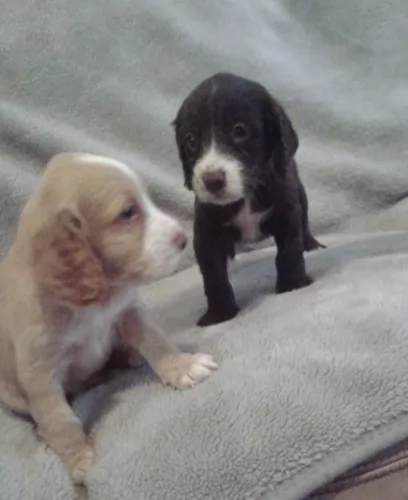 The Croatian Sheepdog is a healthy dog breed. He is the kind of pet that won’t cost you a lot of money because he is low maintenance. In fact he is a dog which has developed resistance to many diseases.
The Croatian Sheepdog is a healthy dog breed. He is the kind of pet that won’t cost you a lot of money because he is low maintenance. In fact he is a dog which has developed resistance to many diseases.
With good food, exercise and love and care he won’t cost you much in terms of vet’s fees. He can live to be 12 to 15 years of age.
Even though he is a healthy kind of dog, there are some dog illnesses that you will want to be aware of such as bloat and eye problems. Also if you aren’t going to let him become a parent, then spaying or neutering your Croatian Shepherd will have numerous health benefits for him.
 The average lifespan of this dog is between 10 and 13 years, but with good care he can reach 15 years of age.
The average lifespan of this dog is between 10 and 13 years, but with good care he can reach 15 years of age.
The Otterhound is generally a healthy breed but he can sometimes get one or two of the common dog diseases there are.
Common problems that can occur are hip dysplasia. There are things that can be done to prevent this joint condition and one is to ensure your dog doesn’t become overweight. You also want to prevent having your young dog exercise excessively before his first birthday and you don’t want him leaping off beds or other high places.
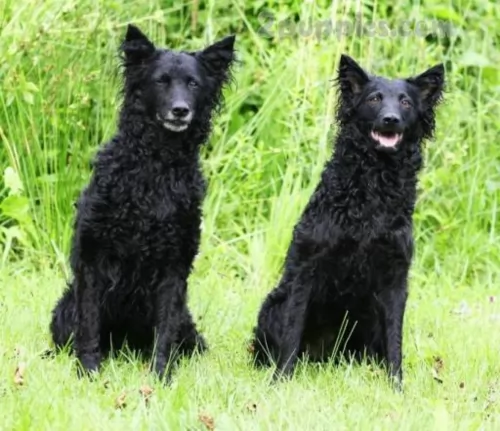 The Croatian Sheepdog has always been a working dog and is regarded as a hardy, low maintenance dog. He will require minimal grooming so a good brush twice a week will suffice.
The Croatian Sheepdog has always been a working dog and is regarded as a hardy, low maintenance dog. He will require minimal grooming so a good brush twice a week will suffice.
There are excellent and convenient dog foods on the market which have been specifically manufactured to ensure your dog gets all the vitamins and minerals he needs for health and energy. Stick to the feeding instructions on the label so that he maintains his lean, muscular body.
Raw meat can be expensive, but it will be to his benefit if you can include some raw meat into his kibble every now and then. If you are unsure in any way as to how to feed your dog, your vet can give you good advice on a food that caters for his age and his activity levels. Always make sure that he has a fresh bowl of water available.
 Your Otterhound has a curly, longish water resistant double coat which doesn’t shed much. The coat is easy to groom, requiring nothing much more than a brush twice a week.
Your Otterhound has a curly, longish water resistant double coat which doesn’t shed much. The coat is easy to groom, requiring nothing much more than a brush twice a week.
The nails of the dog should be checked regularly and trimmed. Check in and outside his ears as well as his eyes for any sign of infection.
His teeth should also be checked. Some people are reluctant to brush their pet’s teeth, saying this is a new money-making fad and that it has never been required in the past. Whatever your views, periodically check inside your pet’s mouth for the sign of a rotten tooth as this can cause your pet a lot of pain and illness.
The Otterhound has no special food requirements and relies on you to feed him quality, tasty food. For convenience, there are some excellent ready-to-eat, convenient commercially manufactured foods made to cater for your pet’s size and his activity levels.
He also relies on variety in his diet, so give him some home-made food added into the kibble a couple of times a week. Boiled chicken, brown rice or pasta and some cooked vegetables such as carrots, sweet pototoes and spinach will be excellent for him.
He will thank you for keeping things so simple for him as then he won’t be plagued by digestive problems and visits to the vet. You can also add in some raw meat occasionally. Never leave him without fresh, cool water.